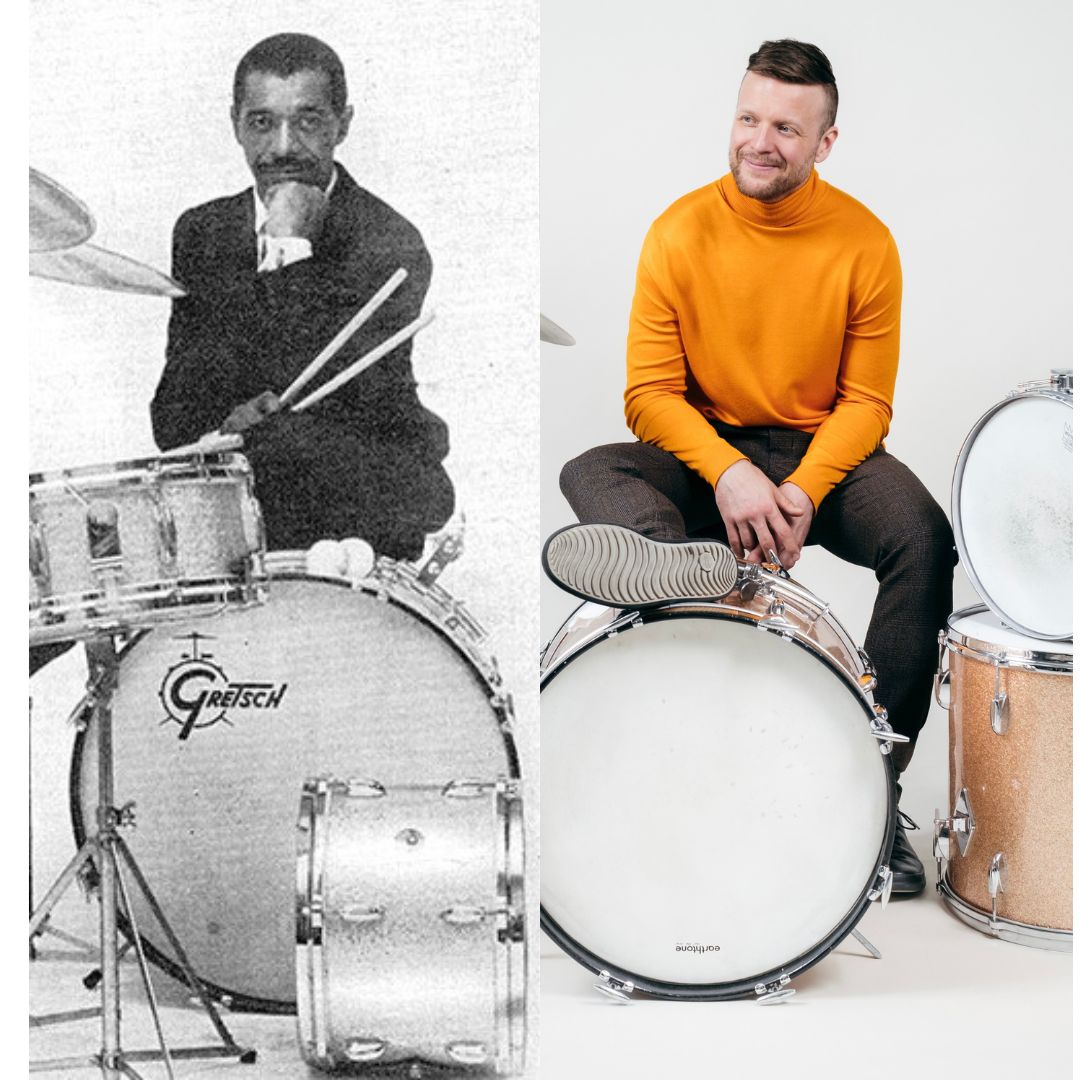Breaking Down Five Core Elements Of The Improvised Comping Of Philly Joe Jones
DOI:
https://doi.org/10.23985/evk.143368Avainsanat:
Jazz, Jazz drumming, Comping, Rhythm, Musical Energy, ImprovisationAbstrakti
This article examines how jazz drummer Philly Joe Jones created and maintained musical energy from the perspective of groove and rhythmic horizontality by using an improvised rhythmic interactional comping texture.1 Through my research, I have found goosing, active accenting, riffing, form structuring, and intuitive call-and-response as core elements of Jones’s comping. My research methods include aural analysis of recordings, musical analysis of transcriptions, imitation by playing, and improvisation. All of these methods are inherent to the history of jazz and the core processes of practice-based artistic jazz research, guiding the researcher “in and through the art“ (Kahr 2022, 9).
My research material consists of transcriptions of Philly Joe Jones’s melody and solo comping from recordings made between 1957–60, a three-year period, which I hold as a peak of Jones’s career. I will first focus on Jones’s sound and fundamental textural elements, showing how Jones interprets the melodies in the jazz standard Surrey With The Fringe On Top and Wayne Shorter's composition Mama G (Nellie Blye). I will continue analyzing Jones’s solo comping textures, adding transcriptions of Jones’s comping in Kenny Dorham’s composition Karioka. In all these recordings, Jones’s comping creates a multi-layered grooving texture, following the harmonic form of the composition while synchronizing rhythmically around the melody.
1 Comping, according to Garrett Michaelsen (2013: 117–120), is derived from accompanying and complementing. He also claims accompanying is the act of supporting the soloist.
Kahr, Michael (toim.) (2022) Artistic research in jazz : Positions, Theories, Methods. Routledge, New York.
Michaelsen, Garrett (2013) Analysing Musical Interaction in Jazz Improvisations of the 1960s. PhD diss., Jacobs School of Music, Indiana University.
Article cover photo: Philly Joe Jones (left) and Jaakko Lukkarinen (right) seated behind their drum sets.
Lähdeviitteet
Berliner, Paul (2009) Thinking in Jazz: The Infinite Art of Improvisation. Chicago: University of Chicago Press.
Clark, Colleen (2019) The Evolution of the Ride Cymbal Pattern from 1917-1941: An Historical and Critical Analysis. Denton: University of North Texas.
Doffmann, Mark (2008) Feeling the Groove: shared time, and its meanings for three jazz trios. The Open University Department of Music. https://www. http://oro.open.ac.uk/60200
Givan, Benjamin (2016) " Re-Thinking Interaction in Jazz Improvisation ". Music-Theory Online, vol 22, Iss.3 http://mtosmt.org/issues/mto.16.223.3/mto.16.22.3.givan.html.
https://doi.org/10.30535/mto.22.3.7
Hodson, Robert (2007) Interaction, Improvisation, and Interplay in Jazz London & New York: Routledge.
https://doi.org/10.4324/9780203944103
Kahr, Michael (toim.) (2022) Artistic research in jazz: Positions, Theories, Methods. New York: Routledge. https://doi.org/10.4324/9780429275838
Ketola, Markus (2007) The effect of jazz harmony on rhythm and drumming (translation by author). Helsinki: University of the Arts, Sibelius Academy
Korall, Burt (2004) "Drummin' Men: The Heartbeat of Jazz: The Bebop Years" New York: Oxford University Press.
Mallory, Dustin (2013) Jonesin': The Life and Music of Philly Joe Jones. New Jersey: Rutgers, The University of New Jersey.
Michaelsen, Garrett (2013) Analysing Musical Interaction in Jazz Improvisations of the 1960s. Indiana: Jacobs School of Music, Indiana University.
Monson, Ingrid (2009) "Saying Something: Jazz Improvisation and Interaction" Chicago: University of Chicago Press.
Whittall, Geoffrey (2015) Groove. Grove Music Online. https://doi-org.ezproxy.uniarts.fi/10.1093/gmo/9781561592630.article.A2284508 (visited 30.8.2024).





